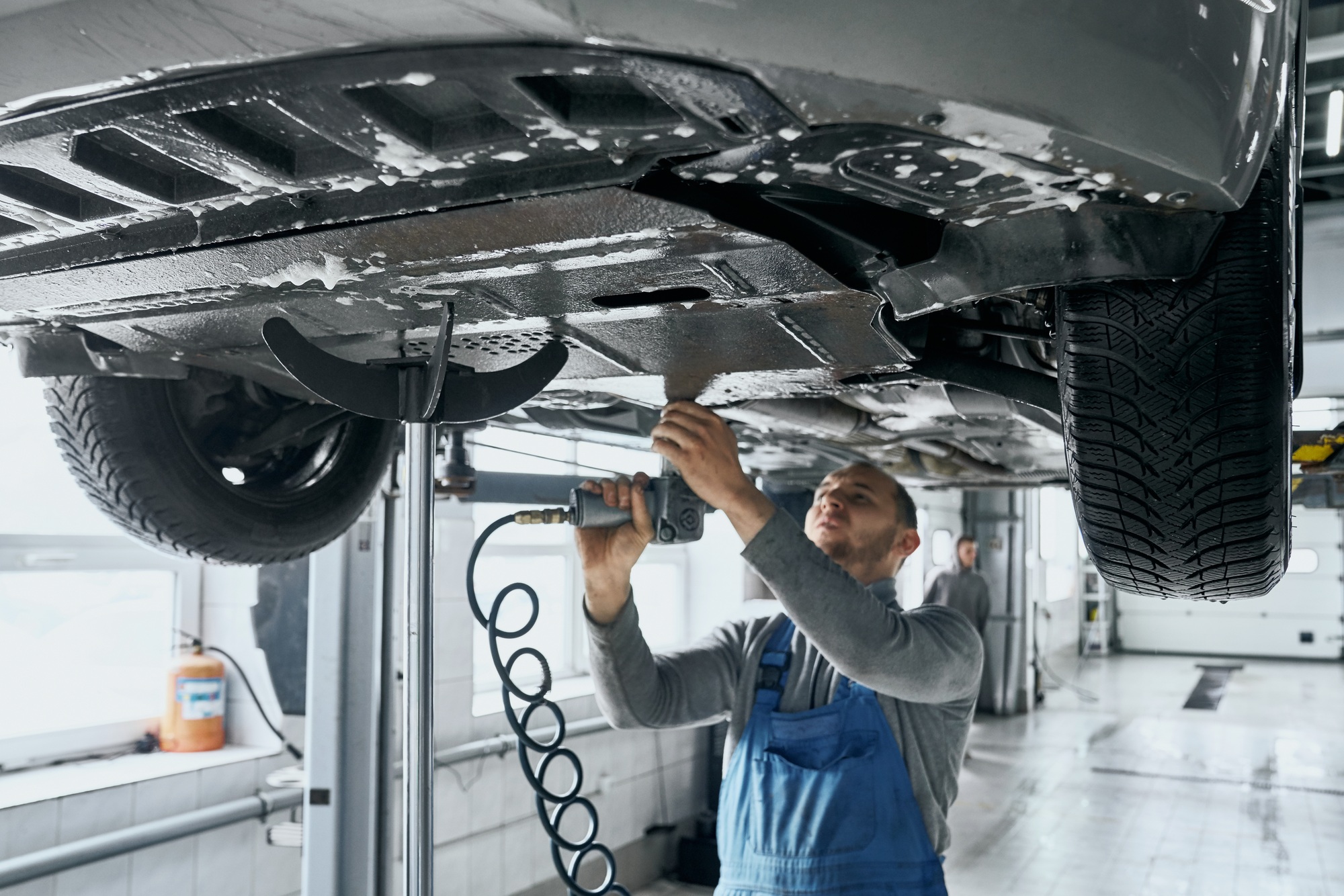Key Takeaways

- Growing Demand: The mobile mechanic business taps into the increasing consumer preference for convenience, allowing mechanics to offer services directly at customers’ locations.
- Flexibility and Low Overhead: Enjoy a flexible work schedule and reduced costs by avoiding expensive shop leases, which helps maximize profits and response times.
- Market Research Importance: Conduct thorough market research to understand customer needs, competitive services, and local trends to effectively shape your business offerings and pricing strategy.
- Legal Compliance: Ensure compliance by acquiring necessary licenses, permits, and appropriate insurance for liability and vehicle use, safeguarding your business and enhancing customer trust.
- Essential Tools and Technology: Equip your mobile mechanic business with the right tools and invest in technology like mobile apps for scheduling and payments to enhance service efficiency.
- Effective Marketing: Establish a strong online presence and engage in networking to build partnerships. Utilize both digital and traditional marketing strategies to attract and retain clients.
If you’ve ever dreamed of being your own boss while working on cars, starting a mobile mechanic business could be your ticket to freedom. With the rise in demand for convenient services, more people prefer mechanics who come to them rather than visiting a shop. This trend creates a fantastic opportunity for you to tap into a growing market.
Launching your own mobile mechanic business not only offers flexibility but also allows you to build strong relationships with your customers. You’ll be able to provide essential services right at their doorstep, making life easier for them and establishing a loyal client base. Ready to turn your passion for cars into a thriving business? Let’s explore how to get started on this exciting journey.
Understanding the Mobile Mechanic Business Model

The mobile mechanic business model operates by providing automotive repair services directly at the customer’s location. This approach caters to the increasing preference for convenience, allowing customers to save time and avoid the hassle of visiting a traditional garage.
What is a Mobile Mechanic?
A mobile mechanic is a professional who travels to customers’ homes or workplaces to perform vehicle maintenance and repairs. This type of mechanic handles various tasks, including oil changes, brake replacements, battery installations, and general troubleshooting. With the rise of technology, mobile mechanics often use mobile apps to schedule appointments and process payments, further streamlining the service experience.
Benefits of Being a Mobile Mechanic
- Flexibility in Work Hours: You can set your own schedule and choose jobs that fit your availability.
- Low Overhead Costs: You avoid expensive shop leases and can operate from your vehicle, minimizing startup investments.
- Increased Customer Base: You appeal to busy individuals who prefer having repair services done at their convenience, thus broadening your clientele.
- Strong Customer Relationships: You build rapport with clients by providing personalized service in familiar environments, leading to repeat business and referrals.
- Expanded Service Area: You can target multiple neighborhoods or regions, maximizing your potential market despite not being tied to a single location.
Aligning with the mobile mechanic model allows you to navigate the small business landscape effectively, meeting customer demands while capitalizing on a growing market.
Initial Steps to Starting Your Business

Starting a mobile mechanic business involves specific initial steps that lay the foundation for success. Focus on understanding the industry, conducting thorough research, and creating a solid business plan.
Conducting Market Research
Conduct detailed market research to identify customer needs and preferences. Survey potential customers, analyze competitors, and assess local market trends. Understand the demographics of your target audience, such as age, income levels, and vehicle types. Use this information to determine the most demanded services, whether they include general repairs, specific brand expertise, or specialty work, like heavy equipment or recreational vehicles. This data shapes your offerings and pricing strategy, increasing your startup’s chances of success.
Creating a Business Plan
Create a comprehensive business plan outlining your goals, target market, and financial projections. Include the services you plan to offer, marketing strategies, and operational details such as your mobile setup and scheduling system. Specify your legal structure, whether you choose a sole proprietorship, partnership, LLC, or corporation. A well-structured business plan serves as a roadmap for your startup, keeping you focused on your objectives and making it easier to secure financing or attract potential investors.
Following these steps can significantly enhance your startup’s potential for success in the small business sector.
Legal Requirements and Licensing

Starting a mobile mechanic business involves meeting several legal requirements and obtaining necessary licenses. These steps ensure compliance with state and local regulations.
Required Licenses and Permits
You must register your business with relevant state and federal authorities. This includes registering with the Department of State, the IRS, and the state’s Department of Revenue. Additionally, you need to obtain a business license, often referred to as an occupational license. Most local governments require this license, allowing you to operate your mobile mechanic business legally. If your state mandates specific permits, be sure to acquire those to avoid penalties.
Insurance Considerations
Insurance is crucial for protecting your mobile mechanic business from potential risks. You’ll need general liability insurance to cover property damage or injury claims. Additionally, consider getting commercial auto insurance if you use a vehicle for your services. If you employ others, workers’ compensation insurance becomes necessary to cover workplace injuries. Having these insurances not only safeguards your assets but also enhances your credibility with customers.
Tools and Equipment Needed

Starting a mobile mechanic business requires the right tools and equipment to provide efficient services. The proper setup enhances your reliability and professionalism, allowing you to meet customer expectations effectively.
Essential Tools for Mobile Mechanics
- Hand Tools: A set of hand tools like wrenches, screwdrivers, and sockets form the backbone of your toolbox. Ensure you include adjustable wrenches, such as the Crescent AC26810CV 3-piece adjustable cushion grip wrench set, and locking pliers like the Crescent C10CVN-08 curved jaw-locking pliers to handle various tasks.
- Hammers: A versatile hammer set is vital. Include multiple types like ball-pein, rubber mallet, dead blow, claw, and cross-pein hammers, for instance, the GearWrench 82303D hammer set. Different hammers serve specific functions, ensuring you’re prepared for any repair situation.
- Diagnostic Tools: On-Board Diagnostics Scanners (OBD-II) are essential for reading engine codes and diagnosing vehicle issues. Investing in quality diagnostic tools helps you quickly identify problems, boosting customer satisfaction and streamlining your workflow.
Investing in Technology
Investing in technology enhances your mobile mechanic business’s efficiency. Utilize mobile apps for scheduling appointments and processing payments, simplifying customer interactions. Keeping records digitally helps in managing customer information and service histories effectively. Explore software tools designed for automotive professionals to track inventory and invoicing, enhancing your overall operational efficiency.
Opt for well-regarded technology solutions to ensure your business runs smoothly, positions you as a forward-thinking startup, and meets modern consumer expectations in a competitive market.
Marketing Your Mobile Mechanic Business

Effective marketing strategies are essential for your mobile mechanic business, especially as a startup. By leveraging both traditional and digital methods, you can attract clients and build a strong brand presence.
Establishing an Online Presence
Building an online presence is crucial in today’s digital age. Create a user-friendly website that showcases your services, pricing, and testimonials from satisfied customers. Ensure contact details are easily accessible since you often work on the go. Optimizing your website for search engines can improve visibility in local searches, drawing more potential clients to your business. Consider using social media platforms to engage with clients and share updates about promotions or special services you offer.
Networking and Building Partnerships
Networking plays a pivotal role in the success of your mobile mechanic business. Connect with local businesses, such as auto parts suppliers and car dealerships, to create referral partnerships. Attend community events and trade shows to meet potential clients and other professionals in the automotive industry. Building relationships in the local community fosters trust and can lead to valuable word-of-mouth referrals, enhancing your reputation as a reliable mobile mechanic.
Conclusion

Starting a mobile mechanic business offers you the chance to tap into a growing market while enjoying the freedom of flexible work hours. By prioritizing customer convenience and building strong relationships, you can set yourself apart from traditional shops.
With a solid business plan and an understanding of legal requirements, you’ll be well on your way to establishing a successful venture. Investing in the right tools and technology will not only enhance your service delivery but also position you as a modern mechanic in a competitive landscape.
As you embark on this journey, remember that effective marketing and networking are key to attracting clients and building your reputation. Embrace the opportunity to create a business that reflects your passion for cars and commitment to customer satisfaction.
Frequently Asked Questions

What is a mobile mechanic business?
A mobile mechanic business offers automotive repair services directly at the customer’s location, such as their home or workplace. This model caters to the growing demand for convenience in car maintenance, allowing customers to save time and avoid visiting a shop.
What are the benefits of being a mobile mechanic?
Being a mobile mechanic offers flexibility in work hours, low overhead costs, access to a broader customer base, and stronger customer relationships. This model enables mechanics to provide essential services where customers need them, allowing for a more personalized experience.
How do I start a mobile mechanic business?
To start a mobile mechanic business, understand the industry, conduct market research, and create a solid business plan. This plan should outline your goals, target market, financial projections, and operational details to guide you through the startup process.
What legal requirements are needed for this business?
You need to register your business, obtain necessary licenses and permits, and secure appropriate insurance, such as general liability, commercial auto, and workers’ compensation insurance. These measures ensure compliance and provide protection against potential risks.
What tools and equipment do I need?
Essential tools for a mobile mechanic include hand tools, diagnostic tools, and equipment for vehicle repairs. Investing in technology like mobile apps for scheduling and payment processing is also crucial for streamlining operations and enhancing customer experience.
How can I market my mobile mechanic business?
To effectively market your mobile mechanic business, establish a strong online presence with a user-friendly website and engage on social media. Networking with local businesses and creating partnerships can help build trust and generate referrals to attract new customers.
Image Via Envato: winnievinzence, westend61, YuriArcursPeopleimages, ckstockphoto, serhiibobyk, nrradmin, drazenphoto, RossHelen



